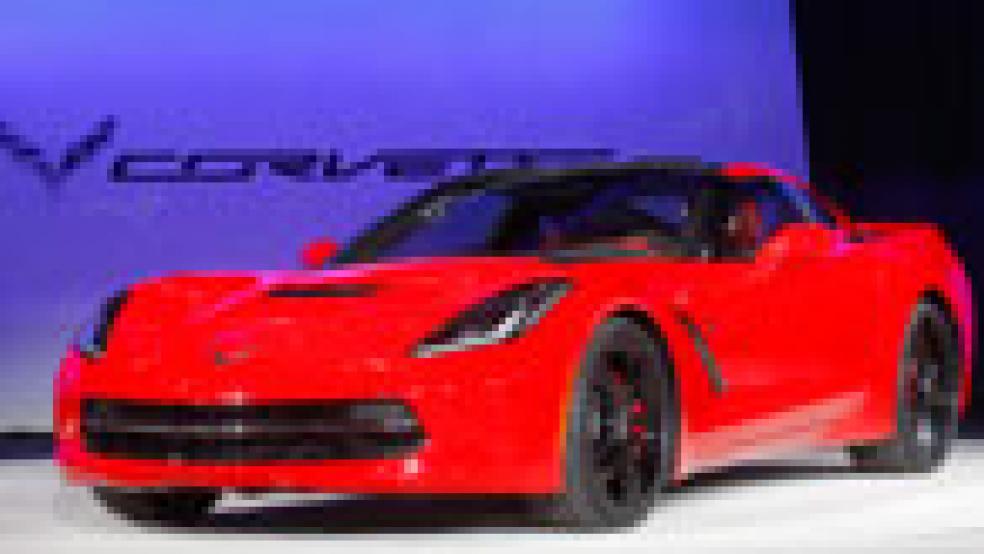It used to be about performance – luxury and environment couldn't be used in the same sentence when it came to cars. Car enthusiasts typically were more interested in how fast a car could accelerate than its fuel economy. But that's starting to change. There's a whole new breed of luxury buyers who are putting fuel economy at the top of their list in deciding which car to buy.
As evidenced from the offerings revealed at the North American International Auto Show this week, automakers are starting to cater to that interest. Mercedes' presentation touted its hybrids. Infiniti unveiled its Q50 direct response hybrid with 360 horsepower. In the 2014 Bentley Continental GT Speed Convertible, unveiled at the show, fuel economy is up 15 percent over the previous model, which only got 18 miles per gallon combined. In unveiling the Corvette, Mark Reuss, president of General Motors, North America, touted the all new, lightweight aluminum frame.
RELATED: 6 Hottest Cars at the Detroit Auto Show 2013
Designing a performance car that gets high fuel economy is no easy feat. That's because luxury cars require more content and bigger engines for more pep, which add weight to the car. But automakers are now getting creative to boost fuel economy, using more lightweight materials and altering the engine so it operates more efficiently, thus ensuring there is no compromise to the power.
A big factor fueling the trend is upcoming fuel economy standards, requiring an average of 54 miles per gallon in the automotive fleet by 2025. As a result, automakers "can't leave out luxury cars" anymore, said Michelle Krebs, a senior analyst with Edmunds.com. She said that fuel economy is one of the top priorities for all consumers, including luxury buyers. Even buyers with discretionary income don't want to deal with the volatility of gas prices and there's "some consciousness about not spending [so much] money on petroleum," she said.
Corvette owners "brag more about fuel economy than their last lap time," says Tadge Jeuchter, chief engineer of the 2014 Chevrolet Corvette. He says the newest Corvette gets better fuel economy than the previous three generations, though EPA hasn't yet released the final figures. The most recent Corvette gets 16 mpg in the city, 26 on the highway. The engine in the new model offers an eco mode where it operates more efficiently, the first time that's been offered with a manual transmission, Jeuchter says.
RELATED: How Fuel Efficient Cars Drive Up Gas Prices
Tim Morrison, vice president for sales and dealer development for Lexus, says Lexus has always been a leader in hybrid luxury. Last year, hybrids made up 16 percent of total sales. "It's part of our DNA," he said, with Lexus currently offering 5 hybrid models, some of which get as high as 43 miles per gallon. He says luxury owners "care more than they did in the past" about fuel economy and appreciate the environmental statement that a hybrid can make.
Audi's S6, S7, S8, A8 and RS7 can switch from using eight cylinders to 4 cylinders in cruising or low torque situations without the driver knowing it, which saves 12 percent in fuel economy. "That allows people to have a great driving car that's also responsible," said Andrew Foulk, Audi's product manager. Its TDI technology, a direct injection turbo diesel, also raises the fuel economy.
The A8 gets 36 miles per gallon using this technology. Its LED headlights also use less energy than the xenon lights used in other luxury cars, he said, further contributing to higher fuel economy. He said even those who can afford a luxury car care about the costs of gas as well as the inconvenience of constantly having to fill up the tank. Audi also has a large proportion of Generation X and Y buyers who feel more social responsibility when it comes to the environment, he said. Echoing the sentiment of many luxury automakers, he says the future will be to deliver high efficiency cars that don't sacrifice performance.




